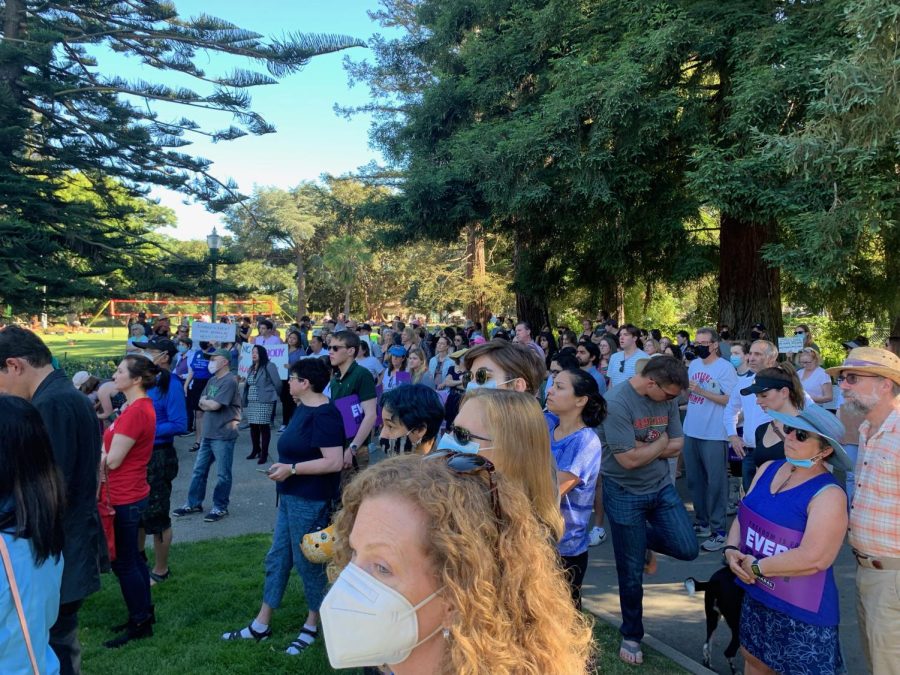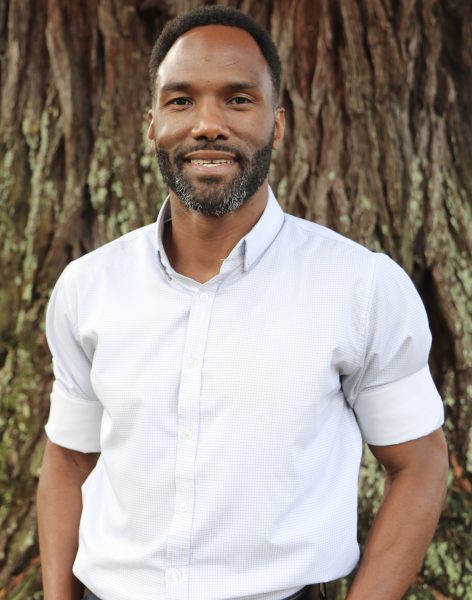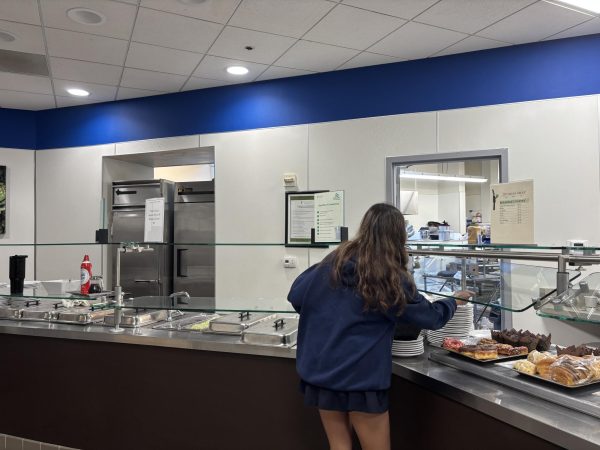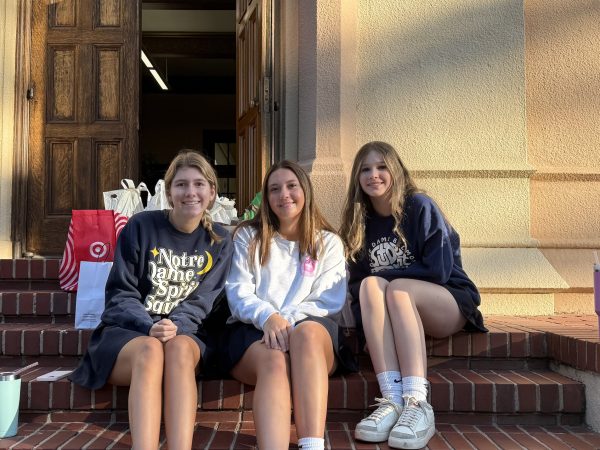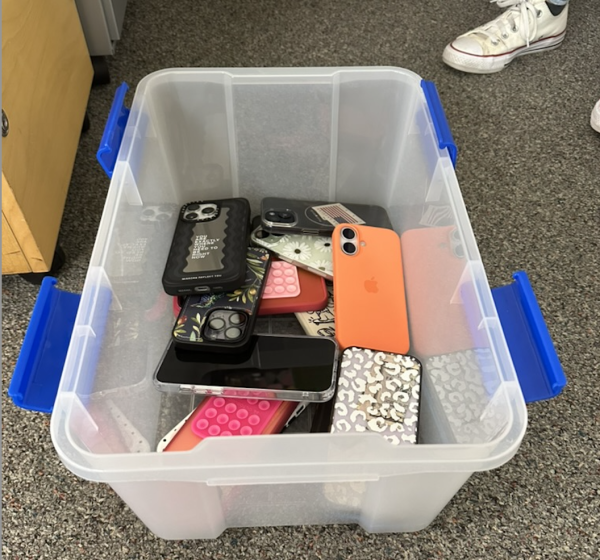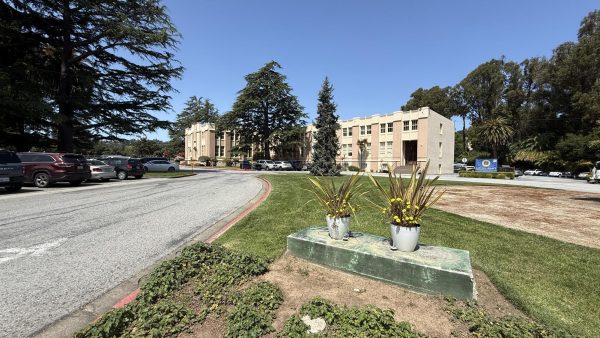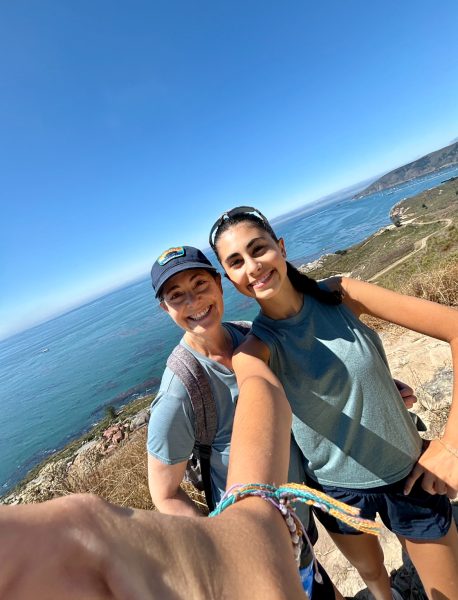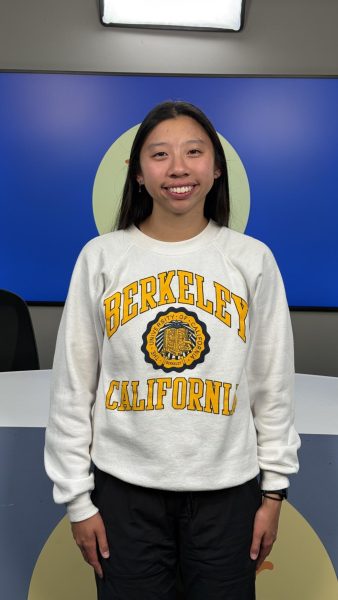Overturning of Roe v. Wade sparks community reflection
The Catalyst / Lauren Fitzgerald
Protesters in Central Park, San Mateo, gather in response to Roe v. Wade overturning.
On June 24 of this year, the Supreme Court overturned the landmark case enshrining the right to an abortion, Roe v. Wade. The overruling case, Dobbs v. Jackson Women’s Health Organization, hands the decision of abortion access to the state level.
In many parts of the nation, laws restricting or completely eliminating abortion access went into effect immediately. Thirteen states – Arkansas, Idaho, Kentucky, Louisiana, Missouri, Mississippi, North Dakota, Oklahoma, South Dakota, Tennessee, Texas, Utah and Wyoming – passed “trigger laws” on abortions deemed medically unnecessary prior to the ruling, which took immediate effect when the Dobbs ruling was handed down. Trigger laws take effect as soon as they are viewed permissible by the constitution, making the time that states allowed abortion after the ruling nonexistent. Other states followed suit, with their restricted or banned abortion access laws passed shortly after the decision.
“It’s pretty unprecedented,” commented Elise Spenner, Editor in Chief of High School SCOTUS, a podcast dedicated to analyzing Supreme Court rulings. “A lot of the rulings that would be seen as this drastic in scope granted rights to minorities … Dobbs takes away a right that women have had for years.”
Many liberal states sought opposite but equal measures after the ruling. Illinois, a state that is geographically surrounded by abortion-restricted states, has recently been designated as a “sanctuary state” – implementing a series of laws protecting abortion seekers and medical providers. In California, protections for abortion access will be on the ballot for the upcoming November election. Proposition 1 seeks to protect abortion access by adding the right to an abortion in the state’s constitution, making the passing of trigger laws such as the ones seen in Texas and Missouri significantly more difficult, as the constitution would have to be amended by the people of California to do so.
Even prior to the ruling, California took a strong stance on abortion.
“We’ve seen laws that prohibit the prosecution of women who travel to California to get an abortion or the people that perform abortions … [the California Legislature] has also made it really, really easy for low income [women] and women below the poverty line to access reproductive care by prohibiting co-pays,” said Spenner.
On the NDB campus, students have reacted to the ruling in a myriad of ways.
“I had discussions about it with my family and friends and I went to a protest,” said sophomore Gabby Lonardo. “I think it’s because it affects us the most because we’re young girls. Notre Dame gave us a place to talk about it.”
Teachers have also chimed in, capitalizing on the educational value of the case.
“I see no difference between the Dobbs decision, Roe v. Wade, [or] Plessy v. Ferguson,” said Karen Fry, AP U.S. Government and Politics teacher. “It should be able to be discussed. All of them.”
Fry also points out the strong reaction NDB students have had to the ruling. “There’s definitely … a tangible feeling here. And I can tell you my students have spoken up with questions and strong emotions about the decision.”
Local elected officials have joined in taking action on the matter.
“If we care about keeping access to abortion legal, about protecting reproductive health care and about ensuring our children are equipped with the information they need to make healthy decisions, we need to care about local elections and pay attention to our candidates’ commitment to reproductive health care access,” said San Mateo City Councilwoman Amourence Lee.
Lee leads the “ProChoice SMC” campaign, which pressures candidates for San Mateo County elected positions to publicly release their stances on Proposition 1 and abortion access.
Across political standpoints, community leaders in Belmont are observing an increase in political interest within their respective communities.
“A lot of people are motivated, a lot of people are energized by this,” commented Belmont Mayor Julia Mates. “A lot of people are paying attention, because it is directly affecting them.”
Mates has also observed the ruling impacting college decisions for high school students. As the abortion laws of a campus’s location are now being taken into consideration for many, students are invited to the conversation of the ruling.
Emotions were high this summer in response to the Dobbs ruling. Both tears of joy and shouts of anger erupted from every corner of the nation. Feelings immediately trickled into local spheres and have undoubtedly impacted the NDB community. While the ultimate fate of legal abortion remains largely ambiguous, students have undoubtedly taken a collective stance as the newest generation of civically-engaged leaders and learners.
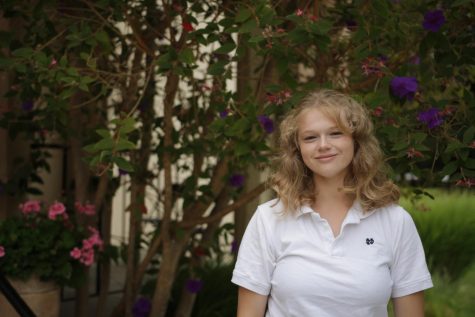
Lauren is a senior at Notre Dame. In addition to being a staff writer for NDB's award-winning student newspaper, The Catalyst, Lauren is a member of ASB...

